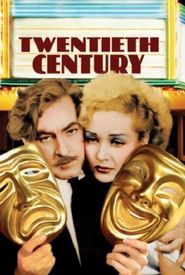Samuel J. Briskin was a towering figure in the glamorous world of Hollywood's Golden Age, a period of unparalleled creative and commercial success in the American film industry. As the head of production at not one, not two, but three of the eight major film studios, Briskin's influence and expertise were felt throughout the industry. His impressive tenure included stints at Columbia Pictures, Paramount Pictures, and RKO Radio Pictures, where he played a pivotal role in shaping the course of cinematic history. Furthermore, Briskin's reputation and authority were such that he was even invited to join the board of directors at Metro-Goldwyn-Mayer, one of the most iconic and storied film studios in Hollywood, in the late 1950s.
Notable American film producer and decorated military officer, Briskin's impressive career spanned multiple decades and encompassed both the excitement of war and the glamour of Hollywood.
As a dedicated public servant, Briskin chose to answer the call to duty during World War II, joining the esteemed Signal Corps where he utilized his exceptional organizational skills to excel as a film producer, ultimately earning the prestigious rank of lieutenant colonel.
Following the war, Briskin, along with fellow visionary and renowned film director Frank Capra, co-founded Liberty Films, a pioneering film production company that would go on to welcome the esteemed talents of William Wyler and George Stevens to its roster.
Throughout his illustrious career, Briskin's tireless dedication to his craft and his country left an indelible mark on the world of cinema, cementing his place as a true Hollywood legend.
Notwithstanding the fleeting existence of the studio, which managed to produce a mere two motion pictures during its brief tenure, both It's a Wonderful Life and State of the Union have transcended the confines of their ephemeral creation, ascending to the lofty pedestal of timeless cinematic masterpieces, their enduring appeal and influence a testament to the studio's remarkable artistic vision and technical prowess.
Briskin's family had a profound connection to the film industry, with a remarkable proportion of his immediate relatives making significant contributions to the field. In fact, three of his brothers and one of his sons pursued careers as producers, demonstrating a strong familial inclination towards the creative and business aspects of the industry. Meanwhile, his sister was married to an individual who would later rise to the esteemed position of Chairman of Columbia Pictures, where Briskin himself spent the final ten years of his life as a vice-president and head of production, until his untimely passing in 1968 due to a heart attack.



















